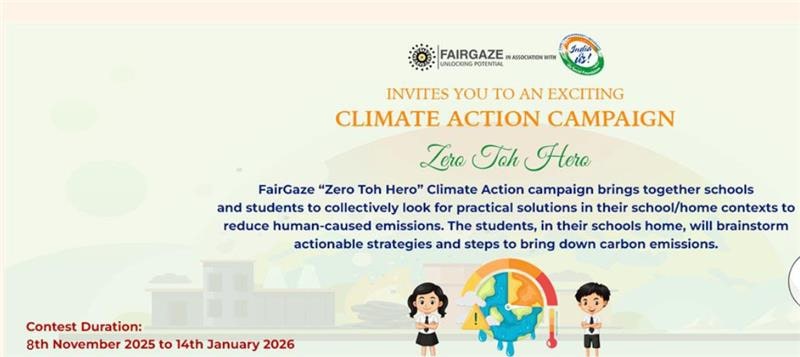
Early signs and diagnosis of Autism Spectrum Disorder (ASD)
Editorials News | Aug-21-2024
Autism spectrum disorder (ASD) refers to a very complex neurodevelopmental condition causing individuals to perceive and interact differently with the world. Variability exists in the severity of the behavior and symptoms it manifests. Early diagnosis is important because once a child is diagnosed with ASD, they can begin to learn how to properly deal with the sensitive interactions and necessary skills that make up a normal life. For parents, caregivers, and healthcare professionals, it is important to understand early signs and diagnostic processes in order to get timely intervention.
Autism Spectrum Disorder Early Signs
The presentation of ASD often occurs in early childhood, before age 3. While every child develops at his or her own pace, some behavioral markers may indicate that additional testing of sight or hearing is needed. These early signs can be categorized into two main areas: restricted or repetitive behaviors plus social communication.
1. Social Communication Challenges
Limited Eye Contact:
People with ASD may not look at caregivers or others around them. You might notice that they aren’t interested in making or maintaining eye contact, which can be the first sign.
Delayed or Absence of Speech:
As many as 80 percent of children with ASD have delayed speech development or never learn to speak. They may not gesture, such as indicating or waving.
Difficulty with Social Interactions:
Kids with ASD may have difficulty engaging with typical social interactions. Never responding to their name or showing little interest in playing with other kids, requiring very little social cues such as body language or tone of voice, are some of the things they may not notice.
Lack of Imitation:
Important to typical development is not mimicking sounds, gestures, and actions, among other things, which toddlers with ASD may not. The children may not engage in pretend play, such as a pretend feeding of a doll.
2. Restricted and Repetitive Behaviors (RRBs)
Repetitive Movements:
Activities such as hand flapping, rocking, or spinning objects are repetitive and so can be observed in a child with ASD. Often self-soothing in nature, they can form as a way to cope with sensory overload.
Intense Focus on Specific Interests:
A child with ASD may become fixated on a single topic, an object, or a routine in that he shows an intense, narrow interest in that matter. So they could be obsessed with trains, dinosaurs, or getting toys in a particular order in line.
Sensitivity to Sensory Stimuli:
Sensory sensitivities are very common in people with ASD. A child could go over or under the line on sounds, textures, lights, or smells. They may cover their ears at loud noises or may not want to wear certain fabrics because they are too textured.
Resistance to Change:
Children with autism may prefer routines and will be uncomfortable if their schedule or environment changes. Even small disruptions can make your child upset.
Early Diagnosis of the Importance
Early detection of ASD is key to early intervention, which has a big potential for improving children's outcomes. Childhood is a critical time in their lives, and the sooner a child can be diagnosed, the more soon they are able to access services like speech, occupational, and behavior intervention, to name a few.
Diagnostic Process for ASD
Because there’s no single medical test, like a blood test, to diagnose ASD, it can be difficult to diagnose. Rather, healthcare professionals present children’s symptoms and behavioral issues to behavioral assessments and developmental screenings.
The following steps are often part of the diagnostic process:
1. Comprehensive Diagnostic Evaluation is a Term Used
If the screening results indicate that further investigation is needed, then a more in-depth evaluation is performed. It involves talking to a parent and caregiver, watching the child’s behavior, and reviewing the child’s developmental history.
For communication skills, social interactions, and behavior, a child might be assessed using diagnostic tools such as the Autism Diagnostic Observation Schedule (ADOS) and Autism Diagnostic Interview-Revised (ADI-R).
2. Collaborative Team Approach
As with most diagnoses, ASD can be diagnosed by a multidisciplinary team of healthcare professionals such as pediatricians, psychologists, speech therapists, and occupational therapists. The collaborative approach also ensures a comprehensive assessment of the child’s strengths and challenges in one area of development and then across multiple areas of development.
In conclusion, Early signs of Autism Spectrum Disorder are recognized, and accurate diagnoses are sought as they are crucial to support children with ASD. There is wide variation in symptoms of ASD, but parents and caregivers still must be on the lookout for how their child develops in terms of social communication and behaviour. Early diagnosis gives the child and opportunity for timely intervention and can make a big difference to a child’s potential. Concerned about your child’s development, it’s important to talk to a healthcare professional that can walk you through the diagnostic process and help you with the proper resources and contacts.
Anand School of Excellence
Related News
-
Nepal's Hydropower Projects
-
Improving Education in Nepal
-
Women's Empowerment in Nepal
-
Nepal's Agricultural Development
-
Advances in Russian Neuroscience: New Hope for Patients
-
Russian Scientists Discover New Gene Therapy Techniques
-
Russia's Biomedical Industry: Growing Innovations
-
History of Indigo Plantation in Colonial India
-
Diwali: Festival Of Lights Not Crackers
-
Impact of Social Media on the Culture
Most popular news
- The Law Of Equivalent Exchange
- Essay On Issues And Challenges Of Rural Development In India
- Srinivasa Ramanujan And His Inventions
- The Youth Is The Hope Of Our Future!
- Poverty In India: Facts, Causes, Effects And Solutions
- Top 20 Outdoor Games In India
- Festivals Of India: Unity In Diversity
- Role Of Women In Society
- The Impact Of Peer Pressure On Students' Academic Performance
- Books As Companion



